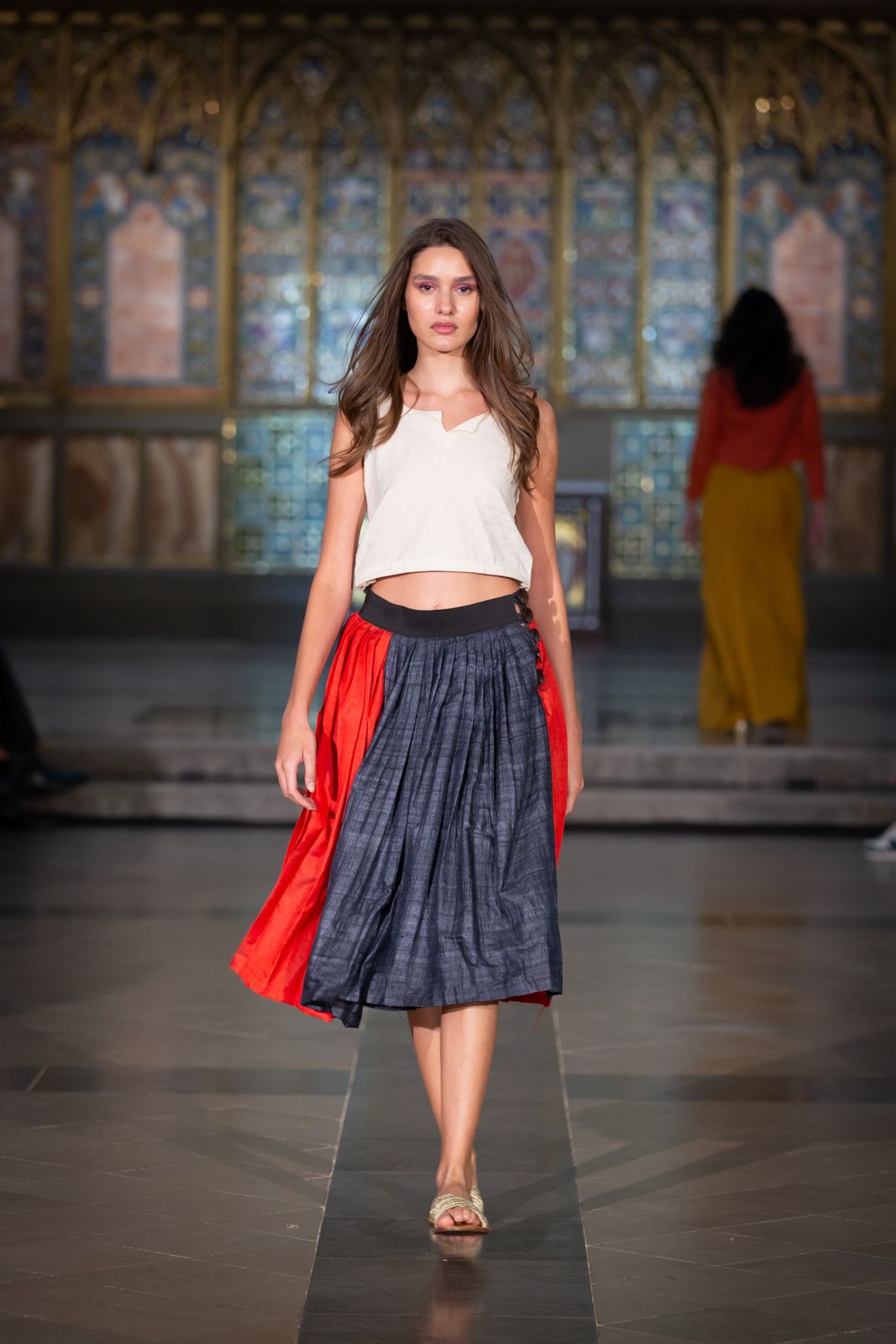Sonal Jindal, Founder of Medusa Group, is redefining the way Indian fashion is perceived across borders. With the upcoming Medusa Exhibit in London, she aims to showcase India’s rich legacy of handloom textiles and artisanal crafts, seamlessly woven into contemporary, global-ready silhouettes. More than a fashion showcase, Medusa positions itself as a cultural movement—one that celebrates India’s artisan heritage while carving a space for emerging designers on international runways.
For Sonal, Medusa is not just about garments; it is about building bridges—between tradition and modernity, creators and consumers, India and the world. In this conversation, she shares what the world can expect from the London exhibit, how Medusa balances tradition with innovation, and her vision for transforming India into a design powerhouse.
1. What can the global audience expect from Medusa’s exhibit in London?
The audience can expect a curated blend of India’s finest craftsmanship and contemporary fashion narratives presented on a global stage. From intricate handloom textiles to avant-garde silhouettes, the exhibit celebrates both heritage and innovation. It’s not just a fashion showcase—it’s a cultural bridge between India’s artisan legacy and international fashion trends.
2. How does the showcase balance traditional Indian craftsmanship with contemporary global fashion trends?
We work closely with designers and artisans to retain the soul of Indian crafts—be it Banarasi, Bhagalpuri silks, or Madhubani-inspired embroideries—while guiding them to reinterpret these elements through modern cuts, sustainable fabrics, and global-ready styling. This creates collections that resonate equally with luxury buyers in Paris and conscious consumers in London.
3. What inspired you to build Medusa as a platform for Indian designers and artisans on international runways?
The inspiration came from two things: India’s unmatched heritage of craftsmanship and the lack of global platforms for emerging Indian talent. I wanted to create a movement where designers, artisans, and students could find international exposure, financial sustainability, and creative validation—transforming India from being just a sourcing hub to a design powerhouse.
4. How do you select the designers and artisans featured in the Medusa Exhibit?
Our selection process focuses on three things: originality of design, commitment to ethical and sustainable practices, and readiness for global markets. We look for designers who can blend creativity with commercial viability and artisans whose work deserves international recognition. Each participant goes through a rigorous curation process to ensure quality and storytelling excellence.
5. Beyond the exhibit, what’s next for Medusa Fashion House and the designers you support?
Beyond London, we’re building a full ecosystem: masterclasses with international institutes, collaborations with global buyers, and upcoming exhibits in Dubai, Milan, and Paris. Our goal is to make Medusa the world’s largest integrated platform for artisans, designers, and students—bridging education, entrepreneurship, and export opportunities under one umbrella.



